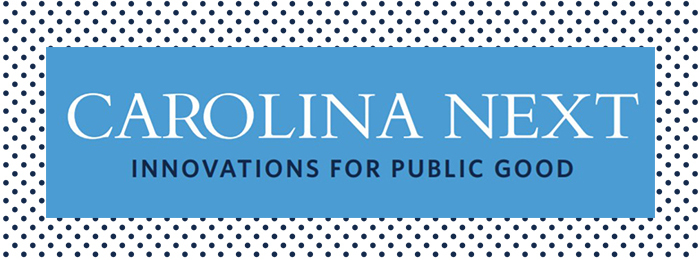University Career Services course prepares students for the job market
The Career Planning and Job Search course is helping juniors and seniors of all majors navigate the career planning process, from exploring various professional opportunities to nailing a resume for the dream job.

Few questions are as uncomfortable as “What are you going to do after college?”
A University Career Services course is helping Tar Heels figure out their answers to that question and take practical steps to make it a reality.
Tamara Taylor, who serves as the interim director of career education and senior assistant director for career coaching and student belonging at University Career Services, leads the course. She uses her experience as a career coach to help juniors and seniors of all majors navigate the career planning process, from exploring various professional opportunities to nailing a resume for the dream job.
The course is one of three that the University Career Services offers in the UNC School of Education.
“These are students who probably would never come into our office for support. This gives us the opportunity to be in their space, present our expertise and support their career journey,” Taylor said.
 Ensuring our students have professional development opportunities that equip them to adapt to a rapidly changing global economy and workplace landscape is at the core of the University’s mission and the Carolina Next: Innovations for Public Good strategic plan. By preparing students for what comes after college, Carolina is helping Tar Heels thrive and become the next generation of leaders.
Ensuring our students have professional development opportunities that equip them to adapt to a rapidly changing global economy and workplace landscape is at the core of the University’s mission and the Carolina Next: Innovations for Public Good strategic plan. By preparing students for what comes after college, Carolina is helping Tar Heels thrive and become the next generation of leaders.
“That return on investment is critical,” Taylor said. “We have all the data in the world that points to the socioeconomic mobility of our students being tied to career experiences they had as an undergrad. It’s critical.”
Taylor talked more about her course, how it’s helping prepare Tar Heels for what comes after graduation and the importance of career exploration
What is the goal of the Career Planning course?
The goal of the class is really to help students plan their careers. I am a big proponent of telling students to stop trying to answer the career question for the rest of their life now because that’s what the majority feel like — that they have to make a career decision today for the rest of their life. And that is not true.
This course allows us to help them understand that, to help them understand what planning looks like and to be open and to accept and embrace that. Exploration is OK at this stage, as it’s going to be something that they will continue to experience until retirement. So the course is designed to aid and support them in their career planning journey.
What topics does this course cover to help the students begin that planning?
We have four steps to career success.
While this is a career planning class and not exploration, I believe it essential to walk students through all four steps. As a career coach, I recognize that most students make early career decisions without answering the why, which can be addressed through self-assessment and exploring careers. Understanding these first two steps can have positive outcomes on the latter two, which are gain experience and market yourself. When a student understands and applies all four steps, they are more likely to have positive early career outcomes.
I use the four steps to introduce the planning process. Students are given free agency in selecting a step or two that they want to focus on for the semester. Doing this empowers them to take action and enhance their development in an area that they self-identify as needing improvement. All of our assignments require self-reflection and action.
Some of the activities include participating in a micro-internship, mock interviewing with recruiters or SWOT [strengths, weaknesses, opportunities and threats] analysis to evaluate their resumes. They also have the opportunity to hear from recent UNC graduates, as well as talent acquisition professionals. A couple of weeks ago, students had a great conversation with Lissie Rivera Fernandez, a May 2022 graduate who now works in D.C. as an associate with Partnership for Public Service. At the end of the month, Flore Dorcely-Mohr, a talent acquisition professional with Maximus, will speak with the class virtually on the recruitment process from a company’s perspective and reiterate why career planning is critical.
We also work on understanding the importance of assessing your skills and how to use that in negotiating your job salary, the importance of telling your story via the resume, cover letter and LinkedIn profile.
Why is it important to have a full class on career planning?
They have a set time in place.
Oftentimes students say, ‘I don’t have time.’ Yes, you do. Or they don’t even know how to get started, and if you don’t know how to get started, you’ll never have the time. You may never seek the resources. You may never seek the help. You may think that you’re doing well because you’re going to class and you are involved, and you’re engaged, but if that’s all you’re doing, that’s not enough to secure a job or be admitted to an advanced degree program.
It’s having a designated time, a designated space and a safe space to acknowledge internally or in a group setting that you don’t know, and it’s OK because guess what? Most folks don’t know. And that’s what we do. We help you start with where you are and give you the tools to help you go forward. We don’t do the work for you, but we introduce the work to you and how you can approach it, and we support you going forward.
What do you hope students take away from this course?
I want them to be confident in all of their documents and how they present themselves, but my personal goal for the students is that they understand that it’s OK to be in a place of exploration when you graduate. Just because you graduate doesn’t mean you have all of life’s answers. It may seem like you’re supposed to because the common question people ask is, ‘What are you going to do after you graduate? Where are you going to work? Are you going to grad school?’ That doesn’t mean people expect that you have all of the answers.
I feel like our students are so caught up in the need to know it all that they don’t give themselves a chance to even enjoy their growth and development. That is what I want for students who not only complete that class but any student that has an experience with University Career Services.




